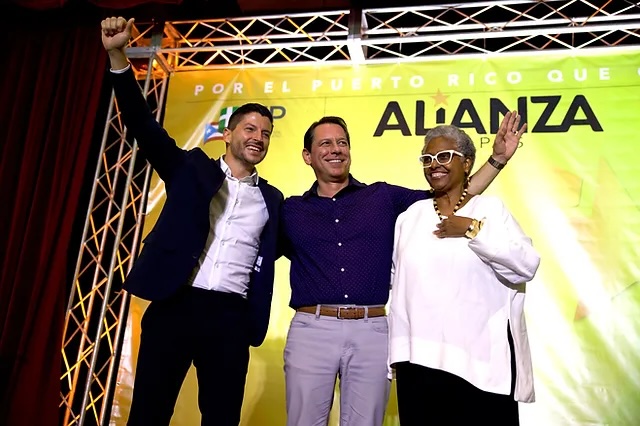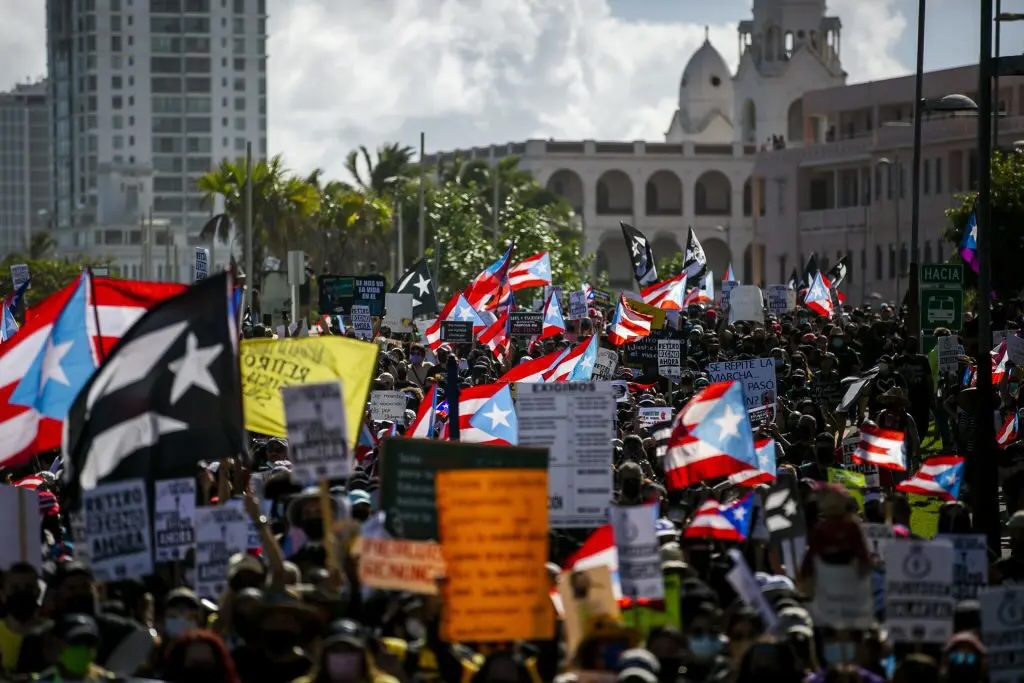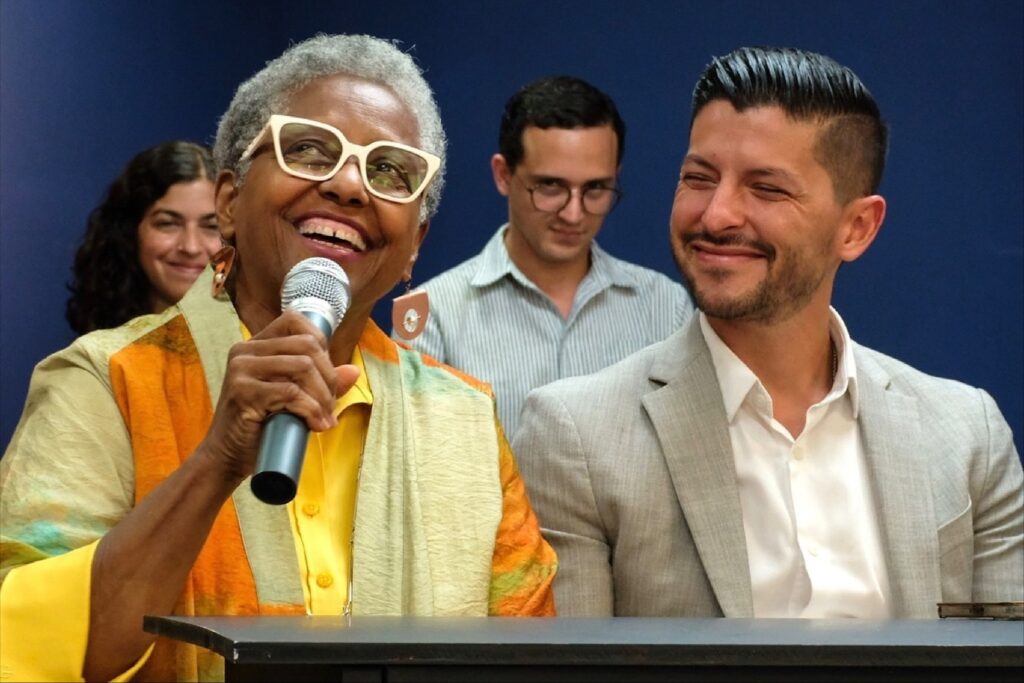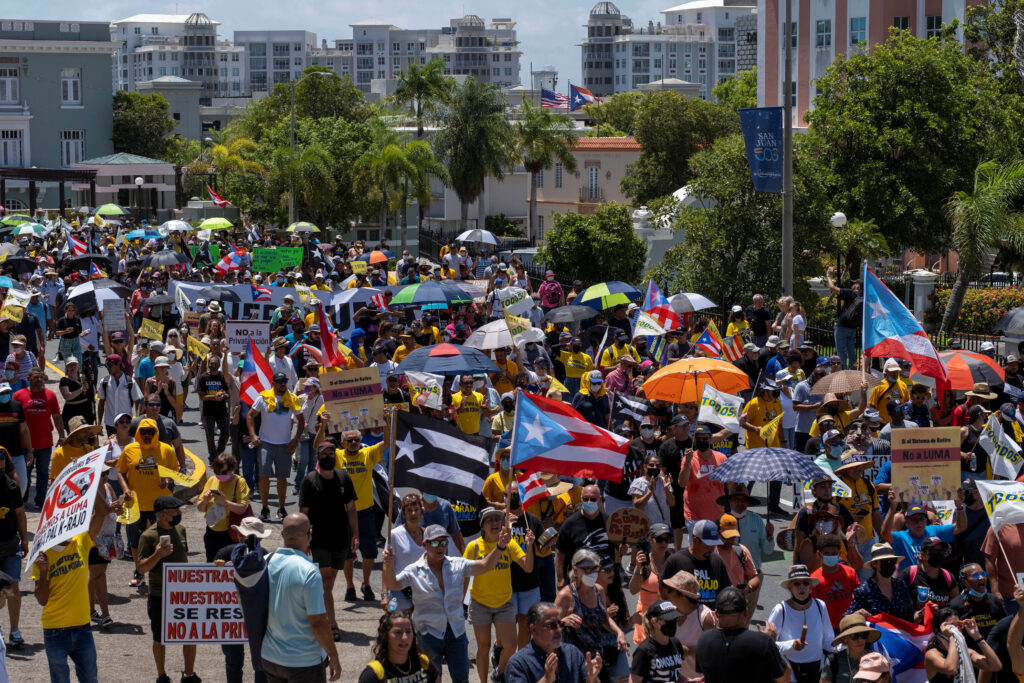For the first time an alliance amongst the center-left has created a viable alternative to bipartisanship in Puerto Rico that could win some significant elections.
Alianza de País: An Alternative to Bipartisanship in Puerto Rico
The “Alianza de País” in Puerto Rico is a new political coalition formed by the Movimiento Victoria Ciudadana (MVC) and the Puerto Rican Independence Party (PIP). This alliance has emerged as an alternative to traditional bipartisanship in the 2024 general elections. It has defined a political agenda focused on ten priority points, including the elimination of government corruption, the recovery of the energy system through the annulment of LUMA Energy and Genera PR contracts, the promotion of a universal healthcare system, and the decolonization of Puerto Rico. They also advocate for the elimination of the Fiscal Control Board, known as “La Junta”, the defense of human rights, the repeal of the 2020 Electoral Code, and the creation of a more inclusive public safety model.
In the U.S., the left has struggled to build a viable “third way” due to the bipartisan system and institutional barriers limiting the competition of minor parties. Although we cannot compare the two systems, since the US electoral college system clearly does not translate to Puerto Rico’s, the possibility of the Alliance was not an easy one and required a lot of political creativity. It has provided a real alternative for the people of Puerto Rico, but not without having to surpass key obstacles.

The Alianza was Formed Despite Government Prohibition of Coalition Parties
The first obstacle for the “Alianza del Pais” is that Puerto Rican law prohibits coalition candidates, restricting any political party from formally uniting to present a joint candidate on a single electoral ballot. This restriction was established in 2011 by the Legislature, controlled by the New Progressive Party (PNP), and with the silent support of the PPD, as part of a series of reforms aimed at consolidating bipartisan power and limiting alternatives outside the traditional parties (PNP and Popular Democratic Party, PPD).
This change came about in response to new political alternatives emerging both in the electoral arena and in the streets. In the mid 2000s political activism in Puerto Rico was gaining momentum, with social movements, organizations, and individuals intensifying their efforts. Various sectors, including primary education teachers, the University of Puerto Rico student body, and unions such as UTIER, had been increasingly mobilizing against the neoliberal policies of both the PNP and PPD since 2005. Then in 2008, a new party called Puertorriqueños Por Puerto Rico emerged, marking the first time in decades that a fresh political alternative appeared. Although it did not pose a significant threat to the established two-party system, the organizing plus the new political organizing led the establishment parties to quickly implement obstacles to prevent future coalition possibilities.
This prohibition significantly impacted the island’s political landscape, making it impossible for parties with common agendas to present consensus candidacies. As a result, the “Alianza de País” in 2024 had to find creative solutions to push for an electoral alternative without falling into the category of a formal coalition prohibited by law.

The Alliance is Fighting for the Governor’s chair, San Juan Mayorship, and a seat in Washington, D.C.
The main candidacies of the “Alianza de País” include Juan Dalmau Ramírez (PIP) for governor, Ana Irma Rivera Lassén (MVC) for Resident Commissioner in Washington D.C., and Manuel Natal (MVC) running for mayor of San Juan. Additionally, the alliance has candidates for the Senate in all senate districts across the island and multiple candidates for legislative and municipal seats across the island. The alliance has been presented as a political alternative that represents the interests of the Puerto Rican people and proposes a change in how the island is governed.
Juan Dalmau is strongly committed to sovereignty, environmental justice, and labor rights, appealing to those who want to challenge U.S. influence and push for economic and ecological reform. Ana Irma Rivera Lassén’s candidacy resonates with those committed to intersectional social justice, diversity, and human rights. Manuel Natal is a young, dynamic leader focused on anti-corruption and progressive urban governance in San Juan. Together, they form a coalition that offers an inclusive, justice-driven alternative for the left in Puerto Rico.

If La Alianza wins, what would it mean for the PR left? Can we scale up social justice work?
If the Alianza de País wins the upcoming elections, it could represent a significant opportunity to scale up grassroots social justice initiatives across Puerto Rico. Programs like comedores sociales and huertos comunitarios, which have played a vital role in addressing food insecurity, could be expanded with government backing, allowing for more locations and resources to sustain their efforts. Additionally, cooperative movements could receive institutional support by creating municipal incubators empowering communities to build worker-owned businesses that operate on principles of solidarity and shared wealth. Public ownership of essential services, such as energy and water, would also be prioritized, ensuring that these resources are managed for the public good, rather than private profit.
This victory could also bring participatory democracy to the forefront, where residents have a direct say in how their communities are governed. Initiatives like participatory budgeting and community councils would give people more power in decision-making processes, fostering a stronger, more inclusive democracy. Overall, a government led by the Alianza de País could transform the way Puerto Rico is governed, creating a partnership between the state and social movements to advance economic justice, sustainability, and equity at a larger scale.

How to Support the Alianza de País from the United States
For those who want to support the “Alianza de País” from the United States, there are several ways to contribute:
- Spread Information and Engage in Digital Activism: From the United States, you can help amplify the alliance’s visibility and proposals through social media and other digital channels. Sharing content related to the “Alianza de País,” creating informative posts, and organizing virtual events to explain their political platform to the Puerto Rican diaspora can generate awareness and support.
- Organize and Mobilize the Puerto Rican Diaspora: The Puerto Rican community in the United States can be a significant resource to influence politics on the island. Organizing community events, discussion forums, or support groups focused on the “Alianza de País” can motivate family and friends in Puerto Rico to vote. Additionally, the diaspora can engage in election observation, volunteer efforts, and resource mobilization to support the alliance.
These actions can significantly strengthen the movement and achieve its objectives in the elections.